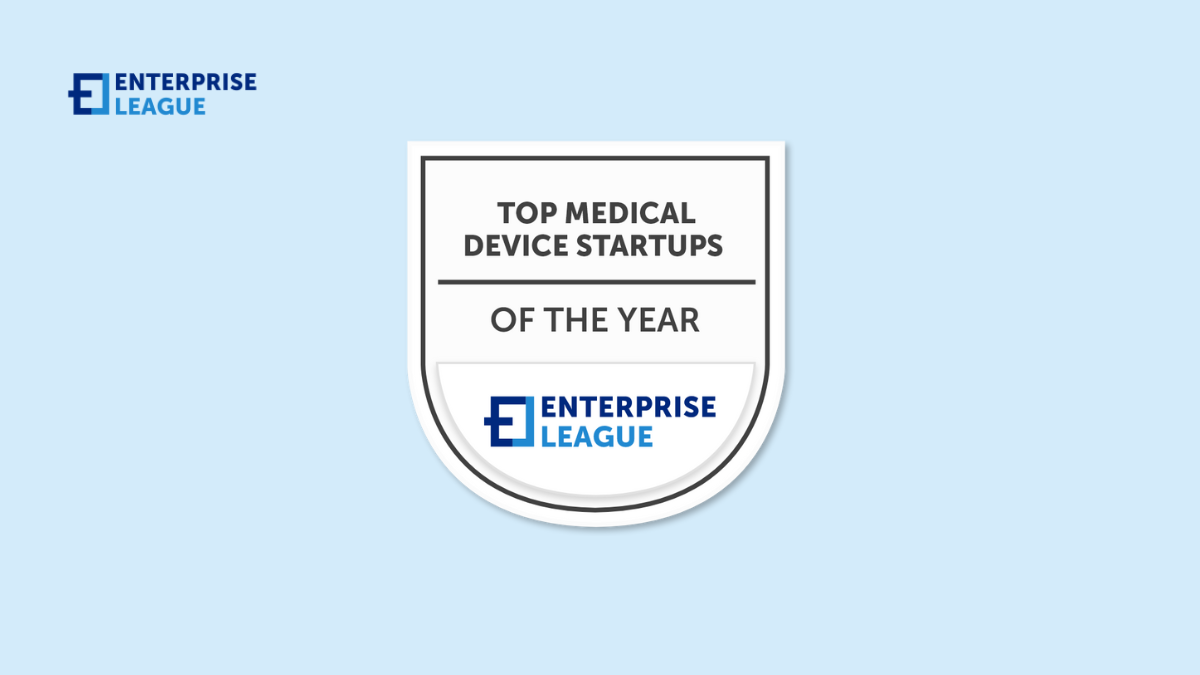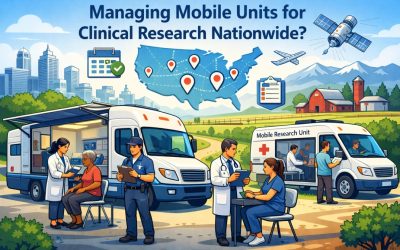With the increasing number of medical device startups, the medical industry is growing rapidly. The need for startups to be innovative and create new products and technologies is high, as more people are suffering from illnesses and injuries that require specialized care.
Medical device startups have advances in computer technology and by leveraging the tech world, they are developing new techniques that allow surgeons to perform complex surgeries without having to use traditional surgical instruments. Being aware of the advantages of the new technology, many hospitals began offering specialized equipment for their patients.
Today more doctors are using medical devices in their practice to provide better care for their patients. The development of new technologies has led to increased competition in the marketplace and this competition has resulted in lower prices for consumers.
What are medical device startups?
Medical device startups are teams of people who are developing devices for the health care industry. They develop these medical devices intending to improve health care and the quality of life for patients. Many startups choose to leverage the advantages of AI to improve healthcare and bring revolutionary solutions to the market.
Most people who start a medical device company do so because they have some experience in medicine or science, and they have ideas about how to improve existing medical technology.
The main purpose of medical device startups is to develop new technologies that can be used to help patients, such as prosthetic limbs, artificial organs, and other devices for the treatment of various diseases. These new technologies can also be used for research purposes.
32 best medical device startups revolutionizing the medical industry
When thinking of medical device startups, which ones come to mind first? Do you think about the many home healthcare products being developed, or perhaps the latest innovations in prosthetics technology?
Considering there are so many medical device startups, we’ve done some research and we are listing the most promising medical device startups you need to keep an eye on this year.
Parasym health
Founded in 2015, Parasym is a medical device startup that makes products using neurostimulation which aims to give chronic inflammation and pain sufferers new treatment options. This innovative approach could provide relief to patient groups ranging from arthritis to IBS to fibromyalgia. As research progresses, the therapy may even help treat diseases like obesity, diabetes and hypertension by targeting inflammation.
Parasym’s non-invasive, non-drug devices offer an alternative for those struggling with inflammation and chronic pain. The startup will continue developing solutions to address unmet needs for these patients worldwide.
ComeBack Mobility
ComeBack Mobility aims to simplify the monitoring of a patient’s rehabilitation progress following a leg injury. Their innovative product, Smart Crutch Tips, is designed to measure the amount of weight a patient applies to their affected leg while using crutches.
The Smart Crutch Tips provide immediate feedback to the patient if they place excessive weight on their leg, allowing them to make necessary adjustments in real-time. This feature helps prevent further injury and promotes proper healing.
Synchron
Synchron is one of the most innovative medical device startups and they’ve developed an endovascular brain-computer interface that can access every corner of the brain using its natural highways, the blood vessels.
Their breakthrough platform launches a new frontier for the treatment of neurological diseases: Neurointerventional Electrophysiology (Neuro EP), and their technology will transform three medical verticals: Neuroprosthetics, Neuromodulation, and Neurodiagnostics.
BiVacor
BiVacor is a medical device startup that is restoring lives by replacing hearts. More specifically, they’ve developed a total artificial heart designed to take over the complete function of a patient’s failing heart.
With a diverse team of medical specialists, world-class engineers, and business executives, they are dedicated to making this ground-breaking technology more accessible. Their product, BiVACOR TAH, uses proven rotary blood-pump technology to provide the required cardiac output, thus it’s a long-term device that can replace the total function of the patient’s native heart.
TytoCare
TytoCare enables people to have 24/7 medical exams with a doctor, from the comfort of home. They’ve developed three healthcare products, all designed to replicate a face-to-face clinician visit. They include a hand-held modular examination tool for examining the lungs, throat, heart, skin, ears, and body temperature, and a complete telehealth platform for sharing exam data.
Lastly, they can conduct live video exams and schedule visits with a cloud-based data repository with analytics. This medical device startup is transforming primary care by putting health in the hands of consumers with built-in guidance technology and machine learning algorithms to ensure accuracy and ease of use.
ZygoFix
Next on the list of the revolutionary medical device startups is ZygoFix, a medical company that has developed a unique implant to achieve spinal fusion in the most minimally invasive approach.
Their system is based on a miniature implant that achieves spinal fusion and spinal stability without screws. Furthermore, the unique construct, made from rigid titanium, adjusts its shape during implantation, and that way it accommodates the challenging synovial joint anatomy and maintains its strength to resist the joint’s applied load.
Puzzle Medical Devices
Puzzle Medical Devices is a Canadian medical device startup that specializes in a minimally invasive long-term hemodynamic transcatheter pump. Their innovative solution enables mechanical hemodynamic support to increase accessibility, improve patient quality of life and reduce the global economic burden related to the disease.
With their product, ModulHeart, doctors can avoid open-heart surgery and will reduce blood trauma, which promises minimal periprocedural and minimal long-term complications. That being the case, with Puzzle Medical Devices, doctors can give low-risk heart support to high-risk patients.
ABLE Human Motion
ABLE Human Motion empowers every person in a wheelchair by developing and commercializing innovative exoskeleton technology which means providing greater mobility and independence for everyone.
Their mission began with a wearable robotic exoskeleton that actively assists paraplegic individuals to stand up, walk and sit down. This robotic exoskeleton is lightweight, accessible, and easy to use, and aims to provide clinicians with a tool to increase the efficiency of rehabilitation, and users with a solution that boosts daily ambulation while empowering them in the community.
Acurable
Acurable is a London-based fast-growing medical device startup that developed a wearable medical device that can accurately diagnose and manage respiratory conditions at home. People can use the device with no training and without the assistance of a specialist or a visit to the hospital, which significantly lowers overall costs.
Moreover, it gives patience 5x more accurate readings than current solutions, enabling automated diagnosis and drastically reducing misdiagnosis. Finally, all their products operate on the fundamental principle that physiological body processes such as the respiratory and cardiac functions generate sounds rich in information.
Bea Fertility
Bea Fertility built the first intracervical insemination kit designed for home use. By building ground-breaking fertility products, this innovative medical device startup is changing fertility care for good.
Bea Fertility’s insemination-at-home service could transform fertility treatment and bring new hope to families that are struggling to conceive. Moreover, the team of this medical device startup is dedicated to helping people in any way possible so they’ve created a very resourceful blog and library that is full of information breaking the stigma of infertility.
Bloomlife
Moreover, this medical device can provide personalized feedback to mothers, and help doctors predict and pre-empt any pregnancy complications. With remote monitoring of critical maternal and fetal health parameters conveniently from home, this solution improves risk stratification, personalizes prenatal care, and improves outcomes.
Flow Neuroscience
Flow Neuroscience is a Swedish medical device startup that has developed a direct-current stimulation device and behavioral therapy app designed to effectively treat depression. By combining brain stimulation and behavior therapy in a headset and app treatment program, Flow Neuroscience reduces depression and increases positive routine.
The best part is that this depression treatment is medication-free so it’s free from the side effects of medication. All you need to do is to stimulate with the headset 2-5 times per week and you will reduce depressive symptoms in 6 weeks.
Thriva
Thriva offers individuals a personalized at-home finger-prick blood test and allows people to easily track and understand what they need to improve their health. The blood tests are then analyzed by the partner laboratory and are reviewed by their in-house doctor to ensure accurate results and health analysis.
Whether you’re interested in learning more about your long-term health or how to improve your energy levels, Thriva offers a variety of blood tests packages. From now on, you can easily get the insights you need to improve your health, access evidence-based ways to improve it, and track any changes.
100plus
100plus is a fast-growing medical device startup that developed a remote patient monitoring platform for doctors and their patients. This healthcare solution enables healthcare providers to remotely manage their patient’s chronic conditions while proactively supporting practices with patient enrollment, outreach, device setup, and education, ensuring patients stay compliant.
With this AI-assisted remote patient monitoring (RPM) platform, doctors will increase efficiency, will decrease hospitalizations, and will have better patient outcomes. So far they can offer diverse devices, from blood glucose monitors to pulse oximeters and weight scales.
Neurent Medical
Another aspiring medical device startup is Neurent Medical. The team of this startup is dedicated to developing highly innovative non-surgical interventions that treat chronic inflammatory Sino-Nasal diseases.
They’ve developed a system that is able to treat symptoms of chronic rhinitis safely and effectively in the ENT physician’s office with a high degree of patient comfort. The NEUROMARK system is engineered to gently apply controlled low-power Radio Frequency (RF) energy to target regions of the nasal cavity. That way it disrupts the parasympathetic nerve signals and halts the inflammatory response, thereby eliminating core symptoms such as rhinorrhea and congestion.
Truvian Sciences
By developing an automated, benchtop diagnostic system to provide lab-accurate results in 20 minutes, Truvian Sciences, a medical device startup, is disrupting the blood-testing industry by leveraging consumer tech.
With a team of top scientists, engineers, and healthcare business leaders, Truvian Sciences developed a solution to make routine health testing convenient, affordable, and actionable for today’s consumers.
InsighTec
InsighTec has the vision to transform healthcare by making MR-guided focused ultrasound a standard of care. This technology is a game-changing innovation that allows performing incisionless brain surgery.
Moreover, they’ve developed a non-invasive therapy platform, Exablate Neuro, that is a proven technology based on sound clinical evidence for treating essential tremor and tremor-dominant Parkinson’s disease. They remain dedicated to improving patient lives by collaborating with physicians, medical institutions, academic researchers, and regulatory bodies around the world and they’re constantly looking to expand their research to address challenging diseases.
LightPoint Medical
LightPoint Medical is one of the most revolutionary medical device startups and is a technology leader in precision-guided robotic cancer surgery. They are developing miniaturized imaging and sensing tools for advanced intra-operative cancer detection.
Driven by the mission to improve the lives of people with cancer, their team of experts is working at the intersection of surgery, AI, and the revolution in nuclear imaging. They help surgeons to detect cancer quickly and accurately in real-time, improve patient outcomes, aim to advance surgical precision, and reduce costs for healthcare systems.
TracInnovations
TracInnovations is focusing on innovative solutions for image-based diagnosis and treatment. This medical device startup has developed the Tracoline system, which is an MRI Markerless Motion Tracker and Monitor System that unnoticed records patient’s head movements during brain scans.
The best part is that this system is an advanced 3D stereo vision system that monitors and captures movements online. Is developed to fulfill the clinical requirements for a user-friendly setup, real-time motion feedback, and reliable tracking quality. Moreover, is invisible to the patient and requires minimal additional work from the scan staff.
Neocis
Neocis is another revolutionary medical device startup that is transforming dental implant surgery with advanced robotics. By leveraging the latest technology, this medical company is focused on enhancing dental surgeons’ capabilities and advancing patient care.
The team behind Neocis works closely with dental surgeons to understand their needs with the goal of overcoming surgical and treatment challenges. They are driven to innovate and committed to bringing new approaches to improve patient care and quality of life.
Pixium Vision
Pixium Vision harnesses rapid advances in visual processing, optoelectronics, neurobiology, micro-electronics, and intelligent software algorithms to develop Bionic Vision Systems utilizing its competencies in machine brain interface and artificial intelligence.
For society, blindness is a major economic and social issue. And, with expensive healthcare costs and indirect costs, treatment for blindness represents a major unmet medical need throughout the world. Fortunately, these vision systems are aimed at compensating for profound vision loss and improving the independence, mobility, and quality of life of patients suffering from retinal degenerative diseases.
Nuvia
Founded in 2018, Nuvia is a dental implant center that has rapidly established itself as a trusted name in the dental industry, providing a comprehensive range of implant services to patients throughout the region. Nuvia’s team of experienced, board-certified oral surgeons and dentists employs the latest techniques and technologies to deliver personalized, cutting-edge care.
The company also offers a variety of complementary services, including bone grafting, sinus lifts, and oral sedation. The center’s modern, patient-centric facilities are designed with comfort and convenience in mind, creating a welcoming environment for patients of all ages.
Biofourmis
Founded in 2015, Biofourmis discovers clinically validated biological signatures correlated with disease progression. Their analytics identify fluctuations indicative of risk, which triggers just-in-time interventions tailored to the patient’s needs.
By closing the loop between prediction and care, Biofourmis aims to optimize outcomes through precision treatment while reducing costs. Their therapies integrate into standard care pathways.
Healthy.io
Founded in 2013, Healthy.io created a proprietary computer vision and AI system that transforms smartphone cameras into clinical-grade medical devices. Users can self-administer approved lab tests at home with just their phone.
By enabling accurate testing and rapid results conveniently, Healthy.io aims to improve outcomes and access for chronic conditions through frequent health monitoring outside healthcare settings.
EHealth Technologies
Founded in 2005, eHealth Technologies recognized the challenges fragmented patient health data posed for delivery of quality care. Their technology optimizes record release workflows, alleviating provider burdens through process consolidation and automation.
eHealth’s ROI platform manages millions of requests annually for leading providers including Sutter Health, Penn Medicine, and Inova Health System. As care increasingly requires cross-organization data, eHealth enables information to follow patients securely and efficiently.
Day Zero Diagnostics
Founded in 2018, DayZero brings state-of-the-art metagenomic testing to the decentralized clinical setting. Their approach leapfrogs conventional diagnostics to provide true rapid precision medicine for infectious diseases.
Early adoption in settings like cancer centers validates DayZero’s potential to transform infectious disease management through genomics and computational analysis. As diagnostic possibilities expand, DayZero puts comprehensive answers at clinicians’ fingertips.
Terapify
Founded in 2022, Terapify was created to transform mental healthcare for an increasingly digitized society. Their hybrid model bridges human connections with technology-driven support like AI chatbots. Investors include health tech funds and startups.
Terapify demonstrates how virtual modalities can expand therapy access and encourage consistent self-care. As telehealth gains adoption, their platform provides the community support and professional help many need on modern terms. Terapify brings innovation to managing mental wellness.
CMR Surgical
Founded in 2014, CMR recognized conventional surgical robots were prohibitively expensive for many hospitals and surgeons. Versius delivers robotic precision and enhanced recovery benefits at a wider scale. The system is in use across hospitals in Europe with upcoming US approval expected.
As surgical robotics advance, CMR aims to democratize the technology to benefit more patients globally. The worldwide rollout of their Versius system demonstrates commercial demand fornext-gen surgical capabilities made broadly affordable and integrated.
Resolve Medical
Founded by veteran radiologists and AI experts in 2020, Resolve Medical tackles challenges in diagnostic imaging like clinician burnout and reader variability. Their technology optimizes reading workflows and acts as a radiologist’s assistant to boost precision.
Leading medical centers are piloting Resolve’s software to improve breast, lung, and brain scan diagnoses. By complementing radiology expertise with data insights, Resolve unlocks imaging’s full potential to positively transform patient care and outcomes.
Garwood Medical Devices
Founded in 2015 by engineering veterans, Garwood focuses squarely on advancing medical technology through a research-oriented model. Large device firms and promising startups alike partner with Garwood to conceive and develop inventive solutions from concept to clinical implementation.
Garwood’s unique R&D approach fills an integral role in bridging ideation to commercialization within the medtech ecosystem. Their accomplished team and specialized expertise in catheter systems enables innovators to seize growth opportunities that today’s continuously evolving medical landscape presents.
Verana Health
Founded in 2017, Verana’s founders recognized a critical need for connected, verifiable data pools to support better decision making across the health ecosystem. They build fit-for-purpose data consortiums addressing unanswered questions holding back medical progress.
Major pharmaceutical companies are partnering with Verana to enrich R&D and commercial strategies with deeper real-world evidence derived from their clinical databases. As healthcare grows more data-driven, Verana unlocks its collective potential.
Reperio Health
Founded in 2021, Reperio combines patented blood analysis technology with an easy-to-use at-home kit to unlock consumer-driven preventative care. Their platform delivers complex diagnostics directly to individuals seeking deeper health insights for longevity.
As personalized medicine grows, Reperio places comprehensive health data in individuals’ hands. Their self-care solution reveals risks early and motivates positive habits between doctor visits. Reperio guides the path towards democratized consumer health awareness.
What do all these medical device startups have in common
The medical device industry market is dominated by a handful of major players that control more than half of the industry’s overall revenue. In order to survive and thrive, medical device startups need to offer something unique.
Therefore, all of the above-mentioned medical device startups are solving a problem that no one else has solved before. They’re creating devices and technologies that truly improve people’s lives. They’re developing solutions for unmet needs and improving access to healthcare through technology, affordability, and innovation.
Discover more creative startups that might interest you:
- Engineering startups are changing the world with creative solutions.
- Mind-blowing retail solutions by the world’s most ambitious retail startups.
- Revolutionary biotech startups helping the world with amazing innovations.
- Must-know NFT startups that are on the forefront of this new industry.
- The best DeFi startups working on alternatives for the standard financal services.
Related Articles
Who Offers the Best Commercial Dock and Door Repair and Installation Services? These Are 5 Options in Baltimore, MD
Baltimore, Maryland, is a hub of warehouse and business activity where critical gateways for logistics, including commercial doors and loading docks, must operate reliably to maintain security, safety and efficient workflow. A malfunctioning dock lever or a stuck...
Who Are the Top Residential Moving Companies? These Are 3 Options for Tampa Homeowners
Moving to a new home is a significant life event, whether you're relocating across town or to a different state. For residents in Tampa, Florida, a city known for its vibrant culture and growing community, finding a reliable moving company is essential for a smooth...
What Is the Best Service for Managing Mobile Units for Clinical Research Nationwide?
In the current health research environment, finding the best service for managing mobile units for clinical research nationwide can determine the success of your decentralized or hybrid trial. Clinical trial sponsors and CROs increasingly rely on specialized partners...
Who Offers the Best Commercial Dock and Door Repair and Installation Services? These Are 5 Options in Baltimore, MD
Baltimore, Maryland, is a hub of warehouse and business activity where critical gateways for logistics, including commercial doors and loading docks, must operate reliably to maintain security, safety and efficient workflow. A malfunctioning dock lever or a stuck...
Who Are the Top Residential Moving Companies? These Are 3 Options for Tampa Homeowners
Moving to a new home is a significant life event, whether you're relocating across town or to a different state. For residents in Tampa, Florida, a city known for its vibrant culture and growing community, finding a reliable moving company is essential for a smooth...








